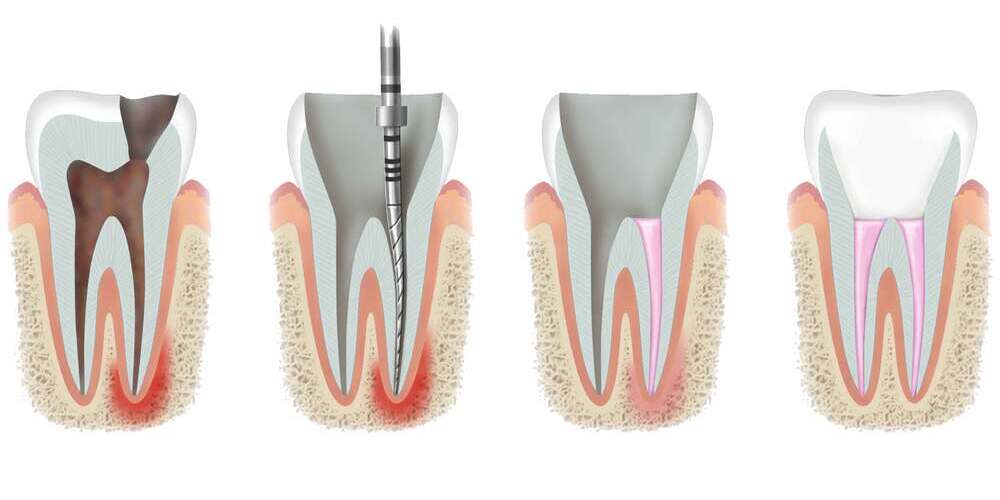
Can Implants Be an Alternative to Root Canal Treatment?
In recent times, the popularity of dental implants has surged among patients. But, can implants serve as an alternative to root canal treatments? Root canal is a demanding procedure, requiring dedication and expertise, and should be performed by skilled dentists equipped with the necessary tools and equipment. The success rate of well-executed root canal treatments varies between 86% to 98%. With careful and precise execution, root canals have a high success rate. Therefore, initially, implants are not an alternative to root canal treatment. Extracting a tooth without evaluation by an endodontist is a flawed approach.
What is Root Canal Treatment?
Root canal treatment saves a heavily decayed or infected tooth. It involves cleaning and treating the pulp, the nerve and blood vessel tissue inside the tooth.
How is Root Canal Treatment Performed?
The procedure starts by numbing the tooth with anesthesia. After removing decay, the canals are identified, cleaned with special materials, washed, dried, and then filled with canal filling materials. The tooth is then sealed. In some cases, if swelling or infection is present, medication is put inside the canals, and the tooth is temporarily sealed. The final procedure is completed in a second session after 1-2 weeks.

Is Root Canal Treatment Painful?
Root canal is not a painful procedure. The area is numbed with local anesthesia, ensuring patients don’t feel discomfort. Some level of minimal pain after the treatment is normal. Avoid biting on the treated tooth during this period. Mild sensitivity usually subsides within a week to ten days.
Does the Treated Tooth Become Sensitive to Hot and Cold?
Properly treated teeth should not experience hot or cold sensitivity.
How Long Does Root Canal Treatment Take?
The duration varies depending on the tooth. It usually takes about 45 minutes to 1.5 hours. While most root canals are completed in one session, some may require two or more.
Who is an Endodontist?
An endodontist is a root canal specialist. Dentists achieve this qualification after passing a specialty exam and completing three years of specialized training.
Is Root Canal Treatment Performed on Children?
Root canals are done on both milk teeth and permanent teeth in children. Treating milk teeth prevents premature loss of decayed teeth until permanent teeth emerge. Pediatric dentists (pedodontists) perform root canals on milk teeth. Endodontists treat permanent teeth in children, using special materials as their root ends may not be fully developed. Detailed information can be obtained by consulting an endodontist or pedodontist.
Care for Treated Teeth
Teeth treated with root canal are more fragile. Regular dental check-ups are essential for those with treated teeth to prevent re-infection due to cracks in fillings. Protective restorations like overlays, endocrowns, onlays, or crowns are recommended for these teeth.
Lifespan of Treated Teeth
Questions like “How long do root canal-treated teeth last?” are common. With proper treatment and oral hygiene, these teeth can last a lifetime, contributing to chewing and oral functions.
